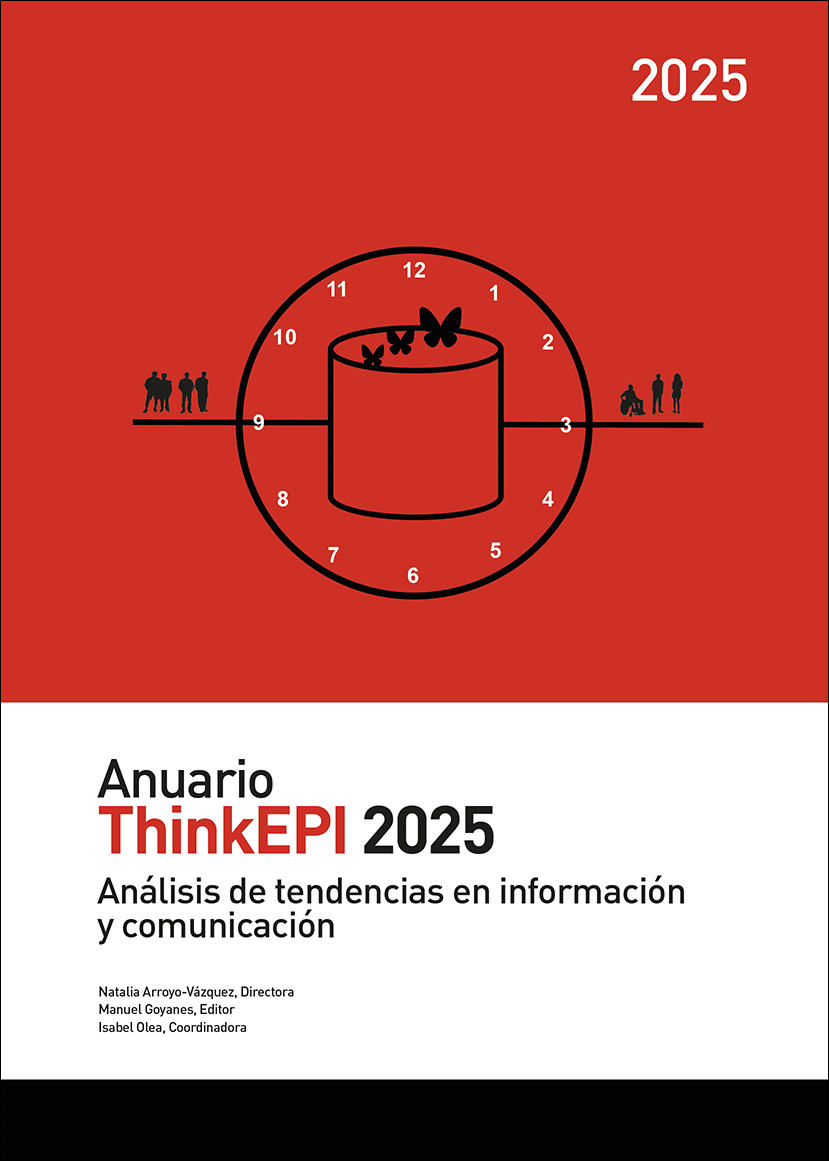Journalistic (re)sentment in times of moving
DOI:
https://doi.org/10.3145/thinkepi.2025.e19a03Keywords:
Digital journalism, Journalists, High-tech and quality informationAbstract
Journalism finds few defenders and very few social actors –the social agents who develop social action– who really support it. This is the price it has to pay for being uncomfortable for those who, for various reasons, do not like the fact that there are information professionals who tell people what happens to people. From various institutional and social quarters, steps have been taken to place journalists and news organisations in the spotlight of criticism, not always reasonable or justifiable, with the aim of eroding their reputation. The current phase of digital transformation, marked by noise, liquidity, disruptive high-tech, disinformation and polarisation that feed the moving ecosystem, encourages the cultivation of media resentment and blurs the contributions that quality information makes to building not only more democratic societies, but also more sustainable and healthy social models. In this paper we analyse the challenges facing digital journalism as it marks thirty years of a journey in which it has shown its ability to adapt to fulfil its essential role in democracy, accountability and civic participation. There has been a progressive increase in the disqualification of journalism and journalists. Based on the current picture, which is built on data from 2024, challenges for news organisations, journalists and journalism research are posed. A review of partnerships in the field is suggested while integrating artificial intelligence to support the professional work of journalists.Downloads
References
Carlson, Matt; Robinson, Sue; Lewis, Seth C. (2021) “Digital press criticism: The symbolic dimensions of Donald Trump’s assault on U.S. journalists as the ‘enemy of the people’”. Digital journalism, v. 9, n. 6, pp. 737-754. https://doi.org/10.1080/21670811.2020.1836981
Chadwick, Andrew (2013). The hybrid media system: Politics and power. Oxford, UK: Oxford University Press. ISBN: 978 01 9069 676 4 https://doi.org/10.1093/oso/9780190696726.001.0001
Choi, Heesook (2024). “Exploring public perception of news and citizenship and its relationship with news use”. Journalism practice. https://doi.org/10.1080/17512786.2024.2407359
Flew, Terry (2021) “The global trust deficit disorder: A communications perspective on trust in the time of global pandemics”. The journal of communication, v. 71, n. 2, pp. 163-186. https://doi.org/10.1093/joc/jqab006
Hagar, Nick; Wachs, Johannes; Horvát, Emöke-Ágnes (2023). “Writer movements between news outlets reflect political polarization in media”. New media & society, v. 25, n. 8, pp. 2034-2056. https://doi.org/10.1177/14614448211027173
Hendrickx, Jonathan; Opgenhaffen, Michaël (2024). “Introduction: Understanding social media journalism”. Journalism studies, v. 25, n. 9, pp. 919-930. https://doi.org/10.1080/1461670x.2024.2368861
Jakobsson, Peter; Stiernstedt, Fredrik (2024). “Media resentment”. European journal of communication, v. 39, n. 3, pp. 245-258. https://doi.org/10.1177/02673231241228961
Jastramskis, Deimantas; Plepytė-Davidavičienė, Giedrè; Kupetytė, Rüta (2024). “The role of organisational factors and working conditions for the autonomy of journalists in an unstable economy”. Journalism studies, v. 26, n. 2, pp. 258-277. https://doi.org/10.1080/1461670x.2024.2420204
Jones, Bronwyn; Jones, Rhianne (2025). “Action research at the BBC: Interrogating artificial intelligence with journalists to generate actionable insights for the newsroom”. Journalism [Preprint]. https://doi.org/10.1177/14648849251317150
Kubin, Emily; Von-Sikorski, Christian (2021). “The role of (social) media in political polarization: a systematic review”. Annals of the International Communication Association, v. 45, n. 3, pp. 188-206. https://doi.org/10.1080/23808985.2021.1976070
Neo, Ric (2022). “Fighting fire with fire? Relegitimizing strategies for media institutions faced with unwarranted ‘fake news’ accusations”. Social media + society, v. 8, n. 1. https://doi.org/10.1177/20563051221077014
Serrano-Puche, Javier (2021). “Digital disinformation and emotions: exploring the social risks of affective polarization”. International review of sociology, v. 31, n. 2, pp. 231-245. https://doi.org/10.1080/03906701.2021.1947953
Thorbjørnsrud, Kjersti; Figenschou, Tine-Ustad (2020). “The alarmed citizen: Fear, mistrust, and alternative media”. Journalism practice, v. 16, n. 5, pp. 1018-1035. https://doi.org/10.1080/17512786.2020.1825113
Van-Dijck, José; Poell, Thomas; De-Wall, Martijn (2018). The platform society. Public values in a connective world. Oxford, UK: Oxford University Press. ISBN: 978 01 9088 977 7 https://doi.org/10.1093/oso/9780190889760.001.0001
Weber, T. J.; Hydock, Chris; Ding, William; Gardner, Meryl; Jacob, Pradeep; Mandel, Naomi; Sprott, David E.; Van-Steenburg, Eric (2021). “Political polarization: Challenges, opportunities, and hope for consumer welfare, marketers, and public policy”. Journal of public policy & marketing, v. 40, n. 2, pp. 184-205. https://doi.org/10.1177/0743915621991103
Downloads
Published
How to Cite
Dimensions


